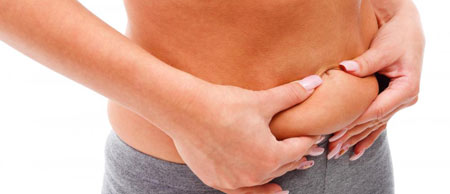The fat truth
Take any supermarket you go into and think about all the food that it sells, what is the one ‘branding’ that is consistent throughout the store? ‘low fat’ ‘reduced fat’ ‘lighter’ options are every where!
Now as a health expert I’m aware that fats are a staple part of are diet and essential to the production of certain vitamins and enzymes that help are body thrive, and yes there is a difference between GOOD fats and BAD fats. This said, there is such a negative approach to including any fats in the diet that people are trying to cut them out completely. This approach is seen as an acceptable way to reduce weight, which could make sense when a gram of fat doubles the calories of protein and carbohydrates. What a lot of people don’t realise is insufficient fat in the diet can lead to dietary deficiencies by compromising the efficient use of vitamins and minerals.
It is recommended that the intake of fats should be around 30% of your daily calorie intake, and many health educationalists suggest 35% would still be associated with health benefits. This said, what is the reason the general population are reducing fat intake? Being the great learning machine that the human brain is, the answer is in the literature that we read or hear say. The problem comes with the reliability of the source.
GPs generally inform clients with any health issues to cut out fats and the media coverage of fats is generally never good. Fats are not completely stored around the body, the fact is the body has three main energy sources, the ATP (immediate energy) the lactate system (stored carbs and CO2) and the aerobic system (fats, and O2). Each system constantly works so no system is ever working alone, so a deficiency in performance of one will have negative effect on the other systems (yet another reason to eat sufficient fats).
The whole process of reducing are fat intake has to come with the source of fat that we get. Take for example ready meals, they are cheap for a reason, cheap ingredients, older food that can’t be sold fresh and generally lots of added flavourings and preservatives to allow it’s expiration date to be extended. The fats in these processed foods are not made with the best oils and tend to be modified to make them solid (rehydrogenated). This is the damaging fats that have a negative effect on are cholesterol and health. This being said there is a second side to fats, a healthier alternative. These fats have HDL fats that help reduce cholesterol in the body. This lowering of cholesterol around are arteries will allow less stress to be placed on the respiratory system allowing greater outputs/gains and work loads.
In terms of healthy weight loss, calorie counting is not necessarily the answer. It’s all about regular slow releasing meals. Fats takes longer to digest than carbs or proteins, a meal consisting of fats slows down the digestion process, slowing down the glycogen spike which reduces the risk of the body going into fat storage mode. This keeps the body’s ability to utilise the fats as an energy source working, allowing more stored fat to be broken down creating a slimmer more defined you.
In conclusion
I’m not asking people to start adding sticks of butter to a chicken salad or get full fat Ben and Jerry’s ice cream as a treat(my cheat of choice!). I’m simply trying to make people aware that lower fat does not always mean healthier. Depending on what the food manufacturer has done to replace the natural fats in the standard food, it may end up being more harmful to the body for long term weight loss and health. Utilise the healthy fats from natural/fresh foods. Only add liquid at room temperature fats to meals, e.g. olive oil. Add fresh fish too your diet is a great way to increase healthy fats with a great omega 3 content!
Healthy regards
Andy Burgess
Gym 72

